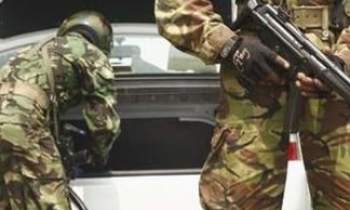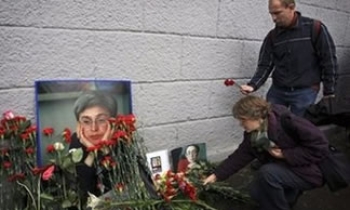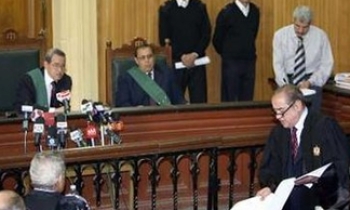You would think that after drafting an editorial cartoon that brought the wrath of Islam down on his head, a man would think twice about stepping back into the fray.
But Doug Marlette, a Pulitzer-prize winning cartoonist from North Carolina, says he admires the European newspapers that are defending their right to publish controversial cartoons of the Prophet Muhammad.
"This is a war of two cultures, it's really a war, and it's really important that in the West we stand up for these hard-won freedoms and that we stand up to bullying and intimidation in the name of sensitivity," Marlette said. "No one is more intolerant than people demanding tolerance, that's been my experience."
In 2002, Marlette was inundated by complaints from Muslims for his depiction of Muhammad driving a Ryder rental truck like the one used by convicted Oklahoma City bomber Timothy McVeigh. It ran under the headline, "What would Muhammad drive?"
He received 15,000 emails, shutting down his website. The Washington-based Council on American-Islamic Relations and the Muslim World League demanded an apology from his syndicator, Tribune Media Services, and from the Tallahassee Democrat newspaper, which briefly posted the cartoon on its website. He was front-page news in Saudi Arabia. He received threats. His family was terrified.
He never apologized.
"In America we don't apologize for opinions, that's why we have a first amendment," Marlette said. "If we can't discuss even controversial opinions in the pages of our newspapers, where are we going to do it?"
Marlette, 56, won the Pulitzer Prize in 1988, mainly for cartoons about the scandal surrounding televangelist Jim Bakker. He said he has been criticized by Protestants, Catholics, Jews, Muslims, Liberals, Democrats and Republicans. He received death threats from Christians in the 1980s.
Marlette says cartoons, even more than words, seem to incite impassioned reaction.
"It's being interpreted as hostility and hate when it's just humour. Ink on paper is only an idea."
Mark LeVine, a specialist in European Islam at the University of California, Irvine, disagrees.
"I utterly support freedom of speech and I'm against any censorship, but then again, just because speech is free and permitted, doesn't necessarily mean you should go around uttering it.
"You can also go around screaming "nigger" at black people. It's legal I suppose, why does that mean you should do it though?"
He said the actions of the European newspapers – the Danish papers that first published the cartoons, and those publications that reprinted them – are about more than free speech.
"I think part of it is just to show who's boss ... a way of saying to Muslims, `Look, you want to live here, this is what you're going to have to put up with,'" said the author of Why They Don't Hate Us, Lifting the Veil on the Axis of Evil.
Toronto Star editor-in-chief Giles Gherson said yesterday it's unlikely the paper would run an editorial cartoon that was "gratuitously offensive," to a segment of the population.
Once that cartoon becomes global news, however, the question becomes more difficult. Should it be reprinted so readers can understand the news?
"We're going to describe in text the cartoons," he said yesterday. "We're going to see if we can explain to our readers what the issues are, what happened, what is portrayed in the cartoons, without actually showing the cartoons if they are inherently deeply offensive to a segment of our society. That would be our preferred approach."









